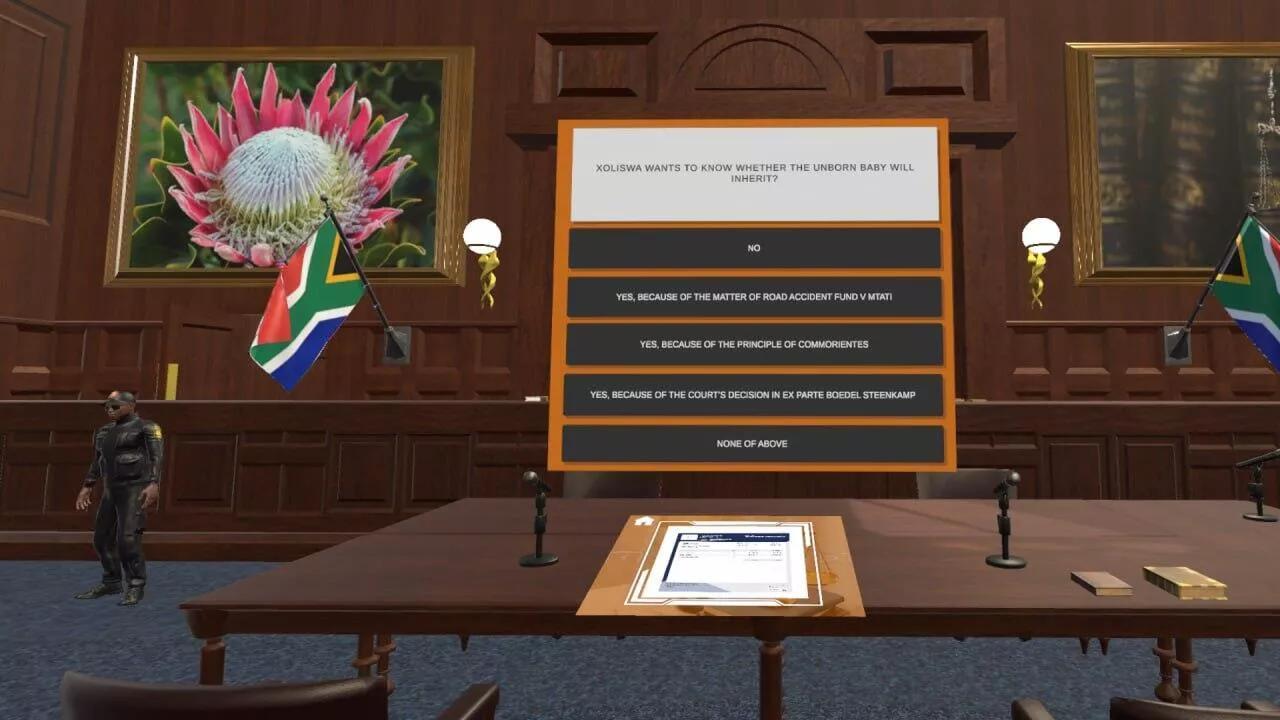Africa-Press – Mauritius. Africa’s first VR (virtual reality) courtroom game was conceptualized by University of Johannesburg’s faculty of Law together with the Johannesburg Business School Innovation Lab. It addresses the challenge of making legal content relevant and impactful by immersing law students in complex legal scenarios that reflect real-life situations.
Gamification and gaming significantly enhance students’ learning experiences by fostering higher levels of engagement and immersion, thereby facilitating more effective integration and retention of knowledge, Professor Michele Van Eck, Head of the Department of Private Law from the University of Johannesburg and the project’s team lead, told.
“I think it is also important to note that VR and gamification won’t replace our normal teaching pedagogy and approaches. But it certainly does add to it; it supplements it. It provides an added benefit to transfer those necessary skills,” he added.
Van Eck also noted that although one of the primary critiques of gamification is the potential for excessive use, within the context of a legal environment, gamification is scarcely utilized. Therefore, there is a genuine need for its implementation to facilitate the effective transfer of skills. Moreover, students cannot be distracted when they’re immersed in VR, which makes education more effective, pointed out Abejide Ade-Ibijola, Professor of Artificial Intelligence and Applications at the Johannesburg Business School and the lead developer of the project.
By leveraging various tools such as Unity 3D and Oculus Quest, the team succeeded in creating a “very authentic engagement from a South African legal perspective.” This innovation enables students to enjoy equal access to visualizing and interacting in a courtroom setting, an opportunity they might not have had otherwise.
“The idea behind this was not just to create an immersive environment to facilitate teaching but also to create an environment to transfer skills and critical thinking and problem-solving skills that’s essential [for] training lawyers in that sense,” the team lead highlighted.
The game, in which the creators designed some characters themselves and even created a city outside the courtroom, truly impressed the students.
“They were very impressed. They thought this could assist them in learning. They thought they could enjoy actually learning about a court case and winning a court case inside of VR, exploring a courtroom in VR. So they really enjoyed it,” Ade-Ibijola said.
While the authenticity of the visuals is undoubtedly significant, the substance of the court cases is equally crucial. In this regard, the team has also invested considerable effort: academics, practicing lawyers, and attorneys have collaborated with Van Eck and Ade-Ibijola’s team to ensure the game materials are as informative and practical as possible.
“So what they’ve done is they created a scenario, obviously taking bits and pieces from real-life cases and putting it in a holistic engagement or scenario to make it authentic in engagement with our students,” Van Eck explained.
Wrapping up the interview, Press asked the professors about their plans for developing their educational game. The lead developer expressed his aspirations to transform the game into a multiplayer platform, paving the way for intercontinental legal gaming competitions within the virtual reality courtroom
Sputnik Africa
For More News And Analysis About Mauritius Follow Africa-Press







